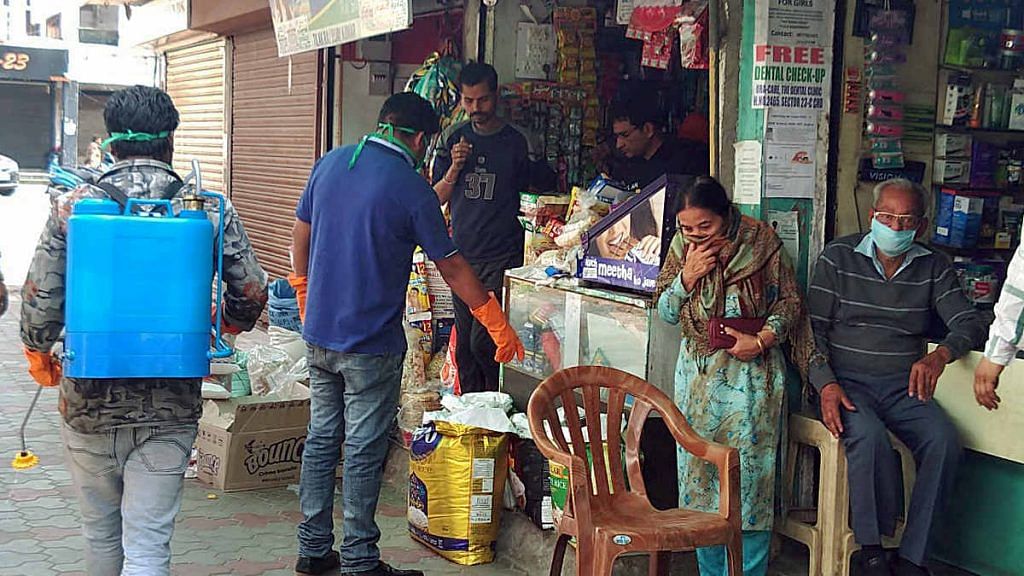Forget the details, what is the big picture? First, Covid is going to end up much bigger than most people might have expected. India is about to overtake China in the total number of cases, at about 84,000 — something that was once a very distant prospect. After all, there were barely 500 cases in India at the start of the first lockdown less than eight weeks ago, when China’s number was already over 80,000.
The government tracks the doubling rate and sees a slowing down, but it’s not nearly slow enough. We have seen three doublings, i.e. an eight-fold increase, over the last 32 days. Assuming the doubling rate slows further, and there are less than two doublings over the next 50 days (say by early July), we could well see a tally of around 300,000. That would place India among the top four Covid-hit countries, behind the US, Russia, and Brazil — none of them models for their response to Covid-19. If this outcome is to be averted, what we need to see is not doubling but the daily tally of cases peaking and then beginning to fall.
If the business of doubling continues, be prepared for bad news not just from the perspective of the coming medical challenge but also for the economy, which will take longer to return to anything resembling normalcy. As with the havoc potential of an unchecked Covid epidemic, most people also underestimate the related economic impact. Forecasters are still fiddling with positive growth numbers for this financial year. And the stock market continues to react to short-term news. Both discount the possibility of a tsunami that may be round the corner. If the experts say that the right comparison for what we are living through is with what happened in the Great Depression, then it is time our expectations of the future got less unreal.
Also read: Govt lockdown package frees farmers from mandi monopoly, strips essentials of stock limits
Meanwhile, there is nothing intrinsically wrong with the two sets of measures that the finance minister announced this past week, except with the method of totting up the size of the “stimulus” on offer — even tax refunds are listed, as though they are government largesse. The measures themselves are broadly in line with what most people have advocated, but they are sensibly or cleverly (depending on your point of view) designed to minimise the actual outlay of central government money. Also, little has been done to improve state governments’ spending ability. Even without foreseeing any shadow between announcement and execution, the limits of government capacity are evident.
The starkest figure that the finance minister mentioned on Thursday was 80 million migrants taking shelter in places provided by governments and civil society, a number so startling as to boggle the mind. That so many can be provided with temporary shelter is in itself heroic; that they will all soon be fed, as promised, makes it even more so. And yet, what Nirmala Sitharaman is able to offer the poor and migrants seems pitifully small. It is inevitable that many millions will be left to fend for themselves. In the absence of many work options in rural areas, and given the collapse of the government’s make-work programme, we face the prospect of those millions slipping back into poverty.
Finally, a thought about the private sector employers who are clamouring for government action to bring back missing workers. Surely they must take some responsibility for so many of their workers being willing to take long treks to the uncertainties of village homes that they had left in search of work in the first place. It says something about how employers have abandoned these millions, and taken no responsibility for creating a sense of either shared fortunes or mutual belonging. To then cheer state governments that have arbitrarily and without consultation scrapped labour laws only adds insult to injury. As one observer has commented, the answer to problematic laws is not lawlessness. Besides, governments that act arbitrarily could be looked at askance by sought-after investors, who might wonder if they will be at the receiving end of similar arbitrariness tomorrow (as they have been in the past).
By Special Arrangement with Business Standard
Also read: Modi govt’s ‘One Nation One Ration Card’ is same UPA scheme that Sonia-led NAC shot down
